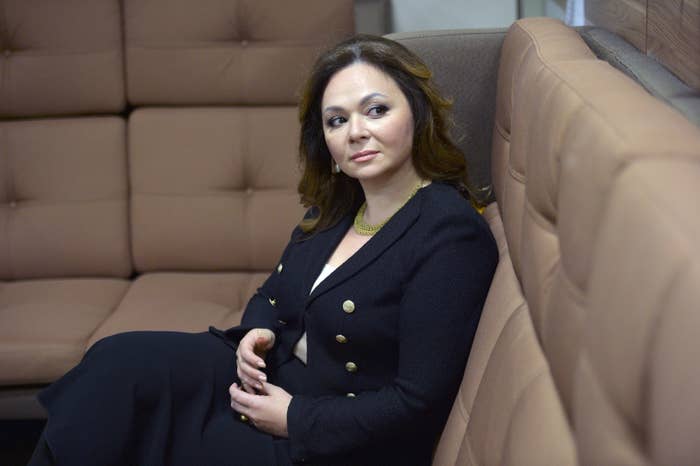
A federal judge suggested Friday that "recent revelations regarding Russia’s outsized influence" raised the possibility that "there may have been more to" a case involving "a massive tax fraud in Russia" that the Justice Department settled earlier this year.
US District Judge William Pauley III raised the possibility in an opinion that endorsed the refusal of the US Attorney for the Southern District of New York to allow two Russians — one of whom was the lawyer who met with Donald Trump Jr. in June 2016 — to come to the US for a court hearing next week related to the case's settlement.
Preet Bharara, the former US Attorney for the Southern District of New York, brought the case against Prevezon Holdings years ago as an attempt to bring Russian interests to court for part of an alleged $230 million tax fraud — some of which, his office alleged, was laundered through property purchased in New York.
The alleged fraud itself was uncovered by a lawyer, Sergei Magnitsky, who was later arrested, mistreated, and died in Russian custody. William Browder, for whom Magnitsky had worked, pushed for international response to Magnitsky's death — even as the Russians claimed it was Browder and Magnitsky who committed fraud.
The Magnitsky Act, as it came to be known, became law in 2012 in the US — allowing the federal government to bar travel and financial transactions in the country for those associated with Magnitsky's death. Russian President Vladimir Putin, angered by the law's passage, responded by halting American adoptions of Russian children.
The two issues remained interconnected through the June 2016 meeting at Trump Tower, when Natalia Veselnitskaya reportedly raised both issues with Donald Trump Jr., Paul Manafort, and Jared Kushner.
Veselnitskaya also is one of the Russian lawyers for Prevezon Holdings.
One month after President Trump fired Bharara, and just before the case was due to go to trial, the government settled with Prevezon Holdings for $5.9 million. On Monday of this week – Oct. 30 – the US Attorney's Office asked the judge to set a schedule so the government could to file a motion to enforce the settlement, saying it was concerned Prevezon Holdings would not pay the money it had promised by Oct. 31, the deadline the government claims was set out in the settlement.
Prevezon Holdings argued in a letter filed Oct. 31 that payment was not yet due. The company's lawyer, Quinn Emanuel partner Faith Gay, also asked the court to "direct the Government to seek immigration parole (or any other necessary temporary immigration status)" to Denis Katsyv, the owner of Prevezon Holdings, and Veselnitskaya to attend a Nov. 9 hearing on the question.
On Thursday, the US Attorney's Office, currently under the leadership of Acting US Attorney Joon Kim, urged the court to deny that request – which the court did on Friday.
Judge Pauley ruled that the discretion to grant or deny immigration parole was given under law to the Attorney General and that Prevezon Holdings presented no evidence that that discretion had been abused.
In opening his decision, however, he suggested a larger picture framed the case before his court.
"In May 2017, on the eve of trial, the parties settled this civil forfeiture action for approximately $5.9 million. Absent settlement, the trial would have showcased a tale of international intrigue – a massive tax fraud in Russia resulting in the transfer of $230 million through a Byzantine web of shell companies," he wrote. "In view of recent revelations regarding Russia’s outsized influence, there may have been more to this money laundering case than a few luxury condominiums at 20 Pine Street."

